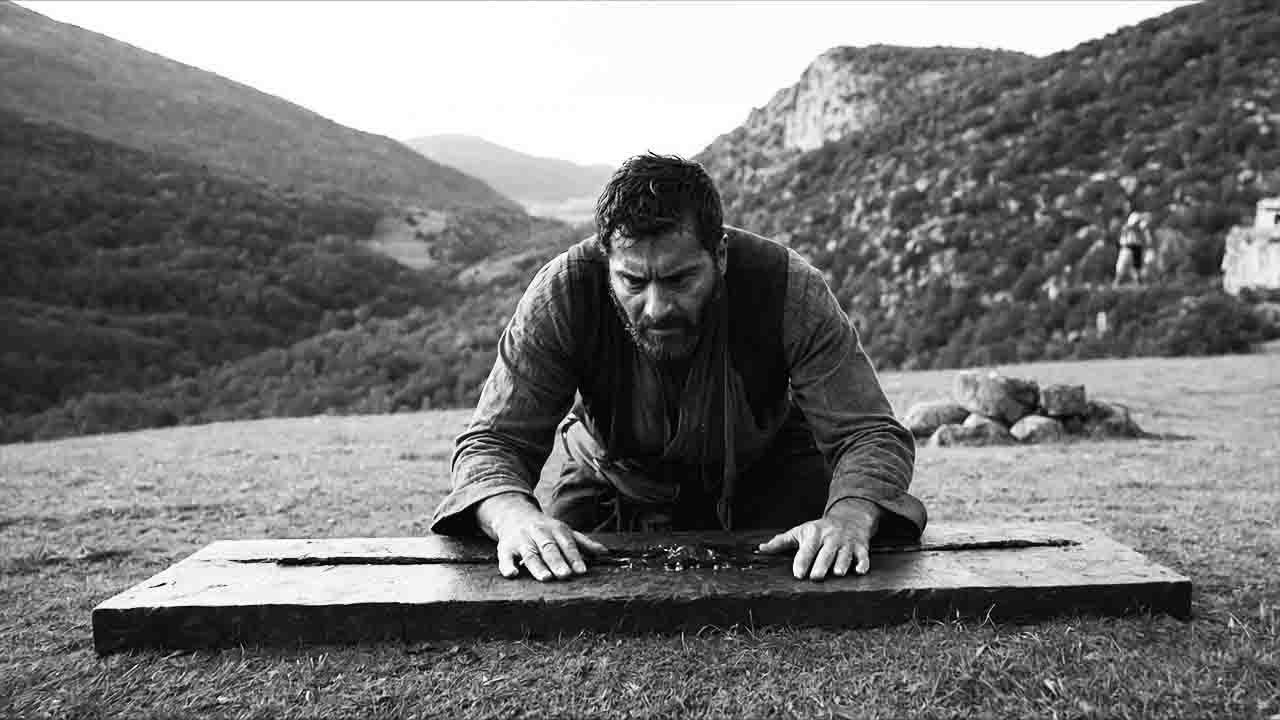Hello, and welcome back to the blog. I am Sherman Rivers, and today, we’re diving deep into a concept that many of us encounter in our lives: sacrifice. But what does it truly mean to sacrifice? Should we sacrifice ourselves for others, and what are the hidden consequences of doing so?
In this post, we’re going to explore the complexities of sacrifice, distinguish it from compromise, and discuss why we sometimes sacrifice more than we should. Are we giving up what’s important to us in the name of “doing the right thing”? Let’s take a closer look.
The Two Definitions of Sacrifice
When we talk about sacrifice, it’s important to understand that there are different interpretations of the word. Generally, there are two key meanings:
- Spiritual Sacrifice: The traditional idea, often associated with offering something to God or a higher power.
- Personal Sacrifice: This definition involves giving up something valuable or destroying something for a perceived greater good, often for the benefit of others.
At first glance, these definitions might seem aligned, but they carry different motivations and consequences. One is about a spiritual offering, the other about personal loss. And too often, the two get blurred together in our minds, leading us to make decisions that aren’t always in our best interest.
Is Sacrifice Always Good?
We often hear that sacrifice is a noble act, that it’s something to be celebrated. After all, those who sacrifice for others are seen as heroes—good people who are putting the needs of others before their own. But is that always the case?
Sometimes, sacrifice can be negative. It can be rooted in unhealthy patterns or mistaken beliefs, like the idea that we must always put others first, no matter the cost to ourselves. This idea can lead to self-deprivation and the neglect of our own needs, desires, and goals.
In many cases, we are conditioned to think that sacrifice is an expected part of life. We’re told that it’s the right thing to do—whether it’s taking one for the team, helping others at our own expense, or “falling on the sword” for a greater cause. But if we pause and reflect, we might realize that these acts of sacrifice are not always as selfless as they seem.
Personal Responsibility and Sacrifice
A key point here is personal responsibility. Sacrifice is often tied to responsibility, but it’s important to ask yourself: Are you sacrificing something that you should be responsible for handling yourself? Or, Are you doing something for someone else that they should be doing for themselves?
In both cases, sacrifice can have unintended consequences. When we sacrifice our own time, energy, or well-being for others, we may be robbing them of the chance to grow, take responsibility, or learn from their own mistakes. Instead of helping, we might be enabling a pattern of dependency.
Think about it this way: when you sacrifice for someone, you may be depriving them of an opportunity to improve their situation or gain the skills they need to move forward. This may seem like a selfless act, but it can ultimately hurt both parties in the long run.
Compromise vs. Sacrifice: What’s the Difference?
Another aspect of sacrifice that often gets mixed up is compromise. Many people believe that life is all about compromise—that in order to get ahead, we must constantly give something up. But is this true?
If every decision you make is a compromise, when do you ever get what you want? If everything is a give-and-take, will you ever truly fulfill your desires? It doesn’t add up. Constantly compromising means you’re constantly giving up a piece of yourself, and that’s not sustainable.
Life is about choices and trade-offs, sure. Every decision has its consequences. But if you’re compromising at every turn, you might find that you’re sacrificing too much of who you are and what you want in life. There needs to be room for you to pursue your goals, to act with a bit of selfishness when needed. And that’s okay.
Are You Sacrificing Yourself to Please Others?
We’re often taught that sacrifice is a sign of moral goodness, but sometimes, we make sacrifices to please others or to maintain relationships that might not be as beneficial as we think. Sometimes, we create “false gods” in our lives—people, things, or ideals that we value more than we should.
It could be a person whose approval you crave or a relationship that holds more power over you than it should. The scary part is that, in an attempt to keep these “gods” in our lives, we might sacrifice ourselves. We give up things we deserve—our time, our energy, our happiness—just to maintain someone else’s happiness or to avoid conflict.
This type of sacrifice is dangerous. It’s rooted in fear: fear of losing someone’s approval, fear of upsetting the balance, or fear of being seen as selfish. But in reality, sacrificing yourself in this way isn’t true sacrifice—it’s a misguided attempt to please someone or something that may not deserve that much power in your life.
Worthy Sacrifices Are Rare
Not all sacrifices are bad, but they are rare. When we think of someone like Superman, we often imagine him as the ultimate sacrificer—always ready to step in and save the day. But here’s the thing: even Superman never sacrificed himself needlessly. He didn’t throw himself into situations he couldn’t handle or situations that weren’t his responsibility.
In the real world, we must apply the same logic. Before you rush to “save” someone or make a sacrifice for them, ask yourself: Is this my responsibility, or is it theirs? Sometimes, people need to face their own challenges. Sometimes, making that sacrifice might actually hinder their growth.
Final Thoughts: The Balance of Sacrifice
In life, there’s a balance between doing things for others and taking care of yourself. Sacrifice, when done for the right reasons, can be powerful. But when it’s done at the cost of your own well-being or personal growth, it can be harmful.
Step Back and Reflect
I invite you to take a step back and carefully examine your life. Reflect on the sacrifices you’re making on a daily basis—whether it’s for your family, your friends, your career, or any other obligations. Ask yourself: Are these sacrifices genuinely in service to others? Or are you, perhaps unknowingly, sacrificing yourself unnecessarily?
It’s easy to fall into the trap of thinking that sacrifice is always the noble path, that giving up your time, energy, and happiness for others is something to be celebrated. After all, we’re often told that life is about putting others first, especially in cultures that value selflessness. But when we consistently put the needs and desires of others before our own, it can start to erode our sense of self. You may find that you’re constantly drained, unfulfilled, and disconnected from your own dreams and desires.
Think about it for a moment: Are you truly living in alignment with your values and passions, or have you become so accustomed to prioritizing everyone else’s needs that you’ve forgotten about your own? Are the sacrifices you’re making helping you grow, or are they simply a way to avoid discomfort or the fear of disappointing others?
This isn’t to say that selflessness and caring for others is inherently wrong. There are times when it’s necessary to make sacrifices for the well-being of those we love or for the greater good. However, it’s crucial to assess whether the sacrifices are truly sustainable and in balance with your own well-being. Sacrificing your own happiness or long-term goals for the sake of others’ temporary satisfaction may seem noble in the short term, but it can lead to resentment, burnout, and a sense of losing yourself over time.
Remember Your Needs
Remember that your needs, desires, and happiness matter just as much as anyone else’s. It’s not selfish to prioritize your own mental health, personal growth, or life goals. In fact, taking care of yourself allows you to be in a better position to help others when it’s truly needed. Think of it like the metaphor of putting on your own oxygen mask first before helping others—if you’re not in a good place, you can’t effectively assist those around you.
This reflection doesn’t mean that you should live a life focused solely on yourself, but rather that you should aim for a balanced approach. Taking care of your own needs is not a luxury; it’s a necessity. And sometimes, the most selfless thing you can do for others is to ensure that you’re healthy, happy, and whole.
So, take a moment to ask yourself: Are you living a life that’s true to who you are, or are you sacrificing parts of yourself to meet the expectations of others? Are your actions leading to growth, or are they leaving you feeling depleted and disconnected? It’s time to reflect on the balance between sacrifice and self-care—and understand that, just as you give to others, it’s equally important to give to yourself.
What Do You Think?
Let me know what you think about this topic. Have you ever found yourself sacrificing too much for others? How do you handle the balance of giving and taking in your life?
Thanks for stopping by, and I’ll see you in the next post.
Peace.


